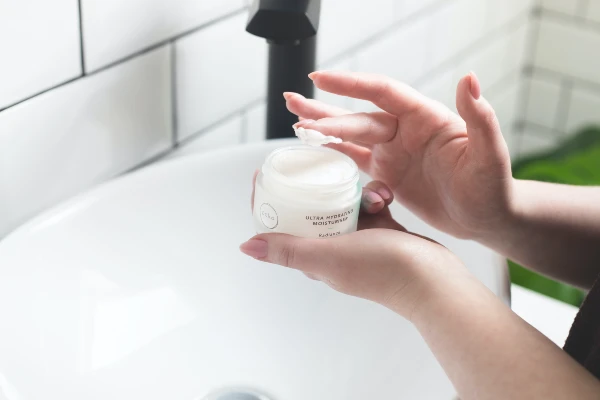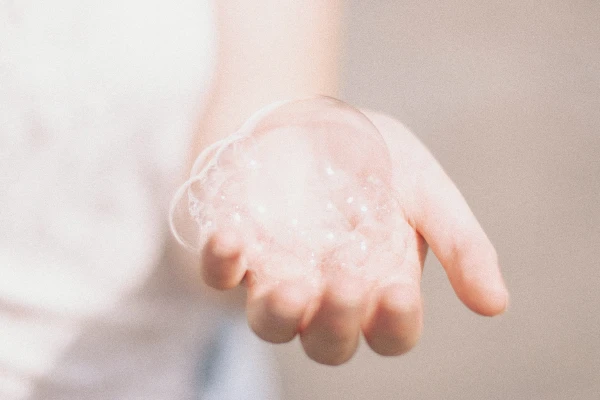Disclosure: This post may contain affiliate links, meaning we get a commission if you decide to make a purchase through our links, at no cost to you. Please read our disclosure for more info.
Last Updated on March 16, 2022 by Steal the Style
Itchy and unpleasant dry skin can become a problem. Dry skin is typically caused by bathing too often, using strong soaps, age, or specific medical issues. It can also be caused by freezing, dry winter air in colder regions.
Sticking with the very same skincare regimen all year may not be as effective when the humidity reduces. In addition, dry air may accentuate wrinkles and fine lines, causing flaking, cracking, and even bleeding if you don’t adjust your skincare routine. Here are some tips for you to combat dryness for healthier skin.
In This Post:
1. Cleanse Your Face Thoroughly Twice a Day
Avoid using strong soaps and cleansers with a strong scent. They dry up the skin by removing the natural oils. Instead, choose a gentle cleanser and avoid excessive scrubbing, which will cause friction and irritation on the skin. After cleaning, rinse with lukewarm water and use a thick face cream right away.
It’s recommended that you find cleansers with stearic acid and linoleic acid. These substances can aid in skin restoration. Cleanse your face only in the evening and rinse with water during other times for those with sensitive skin. If there’s any topical ointment in your skincare regime, apply it when your face is still damp and moist.
2. Remember to Moisturise

Dry skin may be treated with the simplest moisturising lotions. Apply moisturiser many times each day, particularly when your skin starts to feel dry. You should also use moisturiser right after washing your hands or showering when your skin is still damp. This helps close the crevices between your skin cells and lock in moisture.
You may also consult your doctor regarding the benefits and drawbacks of different products for your type of skin and condition. It’s possible that you’ll have to test a few different items before finding ones that suit you best, benefit you, and that you’ll use on a regular basis.
3. Keep an Eye on The Water Temperature
It’s always pleasant to slip into a boiling hot bath after a rough day. However, while it may seem soothing, it is not really good for the skin. Hot water may rob your skin of both oils and moisture, causing it to be dry, dehydrated, and flaky.
When showering or taking a bath, use lukewarm water rather than hot water, and restrict your bath to no more than 15 minutes. Likewise, the lesser time you spend in the tub, the better. Remain vigilant and restrict the time you spend in the shower while also changing the water temperature for your regular baths. You’ll find that your skin will be less dry.
4. Forget about Bubbles

Who doesn’t like a relaxing bubble bath? Most of us indeed have fond memories of bubble baths as children, and many of us still enjoy them as adults. However, you should be aware that all the bubbles you use in your baths may deplete your skin’s natural oils. So rather than a bubble bath, choose calming oatmeal or powdered milk to add to your bath, and try to skip the bubbles.
5. Use an Allergen-Free Hydrating Soap
Some soaps may contain ingredients that are a bit harsh on your skin. This might lead to even drier skin. Instead, opt for a fragrance-free and hypoallergenic moisturising soap for handwashing. After you wash your hands, use a moisturising cream thoroughly while your hands are still moist. For your body wash, you can try a non-soap washing cream. Keep in mind to rinse everything thoroughly and avoid any loofahs or pumice stones.
6. Use Humidifiers
Cold and dry air is one of the leading causes of dry and itchy skin. And to overcome the coldness, we’d often use a central heating system to blow warm air throughout our homes. However, this could lead to even more severe drying problems. Using a humidifier in your house might alleviate the dryness brought on by home heating systems.
Although electric and gas heat remove the moisture from the surrounding air, a humidifier set to 60% will compensate for this. Install a few little humidifiers around your house to help distribute the moisture in the air more equally.
7. Maintain a Regular Skin Care Regimen
Which products you choose, the way you apply them, and how you use them are the most important considerations when caring for dry skin. Keep in mind to prepare your skin beforehand so that moisturising products can penetrate your skin effectively.
Try to establish and stick to specific day and night skincare routines. Apart from that, you’ll also want to make sure you’re using the most delicate skincare products for your particular skin type. A more potent moisturiser should always be applied to your skin during the colder months so that your skin can retain its moisture despite the chilliness in the air.

